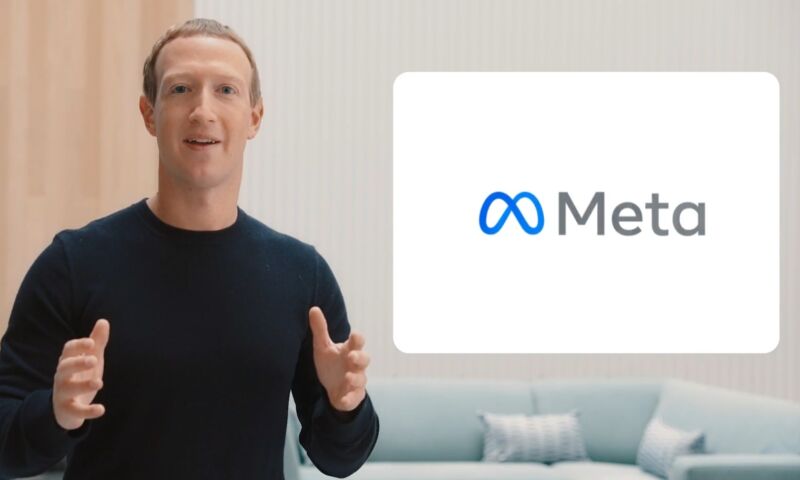
During his Connect 2021 keynote presentation today, Facebook CEO Mark Zuckerberg rolled out the name “Meta” as a new corporate identity reflecting the company’s “new north star—to help bring the metaverse to life.”
The name, which Zuckerberg noted comes from the Greek word for “beyond,” is “a new company brand to encompass everything that we do.” That means the company will be “looking at and reporting on our business as two different segments, one for a family of apps and one for work on future platforms,” he said.
The name “Facebook,” Zuckerberg said, “just doesn’t encompass everything we do” anymore. While social media apps will “always” be a focus for Meta, it has been limiting to have a “brand that is so tightly linked to one product that it can’t possibly represent everything we’re doing today, let alone in the future,” he said.
Naming for individual apps and brands within Facebook won’t be changing, Zuckerberg said, though the Oculus branding is apparently being phased out for the company’s VR headsets. “We want to make it clear that Quest is a Meta product,” Meta VP of AR/VR Andrew Bosworth wrote in a Facebook post. “For this reason, we’re simplifying our brand architecture and shifting away from the Oculus brand. Starting in early 2022, you’ll start to see the shift from Oculus Quest from Facebook to Meta Quest and Oculus App to Meta Quest App over time.”
The shift to “metaverse first” represents “a fundamental change to our company,” Zuckerberg continued, saying that “over time, I hope we are seen as a metaverse company.” That also means that “over time, you’re not going to need to use Facebook to use our other services,” Zuckerberg said, referring to the controversial policy of requiring a Facebook login to use Quest headsets.
A reimagined future
The move is somewhat reminiscent of Google’s 2015 corporate transition to the name Alphabet. As our own Ron Amadeo wrote back then:
Google declares that “Search, ads, Maps, apps, YouTube, Android, and infrastructure” are part of the new, slimmed-down “Google,” and “Calico, Nest, Google Fiber, Google Ventures, Google Capital, and Google X” are independent units under “Alphabet.” Alphabet isn’t a big change in the way Google works, just a formalization of the structure that seems to have been there for years.
Facebook’s rebranding, though, suggests it sees itself as a company with a very different future focus than the one it currently has. The wider Connect keynote presentation focused heavily on the idea of the metaverse, a vision of a social media universe that can seamlessly move between smartphones, VR goggles, and augmented reality glasses. That idea appears to rely on each of Meta’s services working in concert, and Zuckerberg’s Thursday announcement included teases of exactly that, with Instagram, Facebook, WhatsApp, and Oculus systems working in tandem in a demonstration of future social, work, and gaming possibilities.
https://arstechnica.com/?p=1808540

